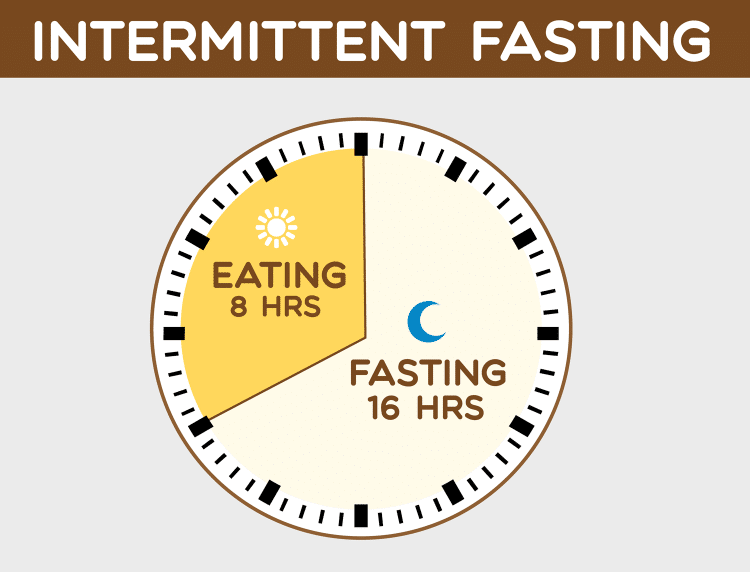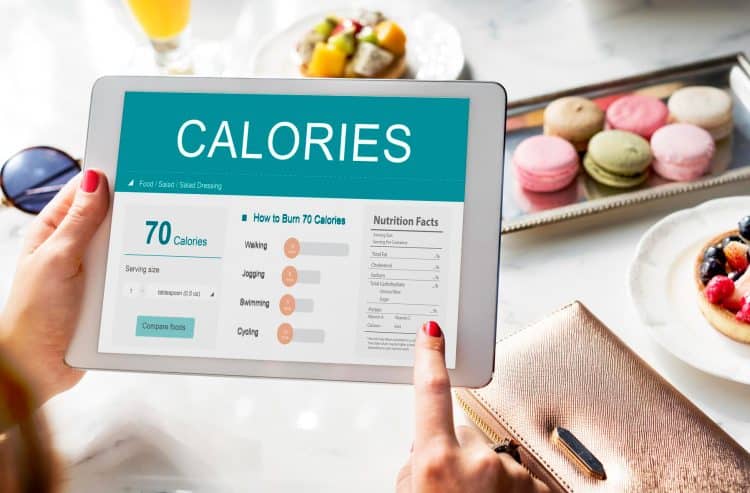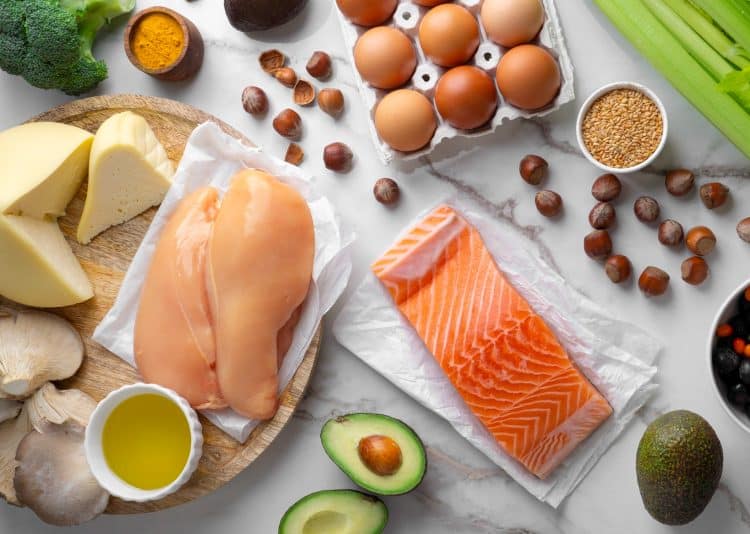Intermittent fasting is an age-old practice that has gained popularity over the past two decades. Intermittent fasting has several health advantages, such as weight loss, reduced inflammation, improved insulin sensitivity, growth hormone production, and controlled diabetes levels.
Several popular fasting plans come under intermittent fasting, including 16/8, 5:2, eat-stop-eat, alternate-day fasting, etc. However, the 16/8 method has become extremely popular among all these plans because it is one of the most flexible fasting plans you can practice daily.
What is a 16/8 Intermittent Fasting Plan?
The 16/8 IF diet is a fasting plan in which you can eat within an eight-hour window and fast for the remaining 16 hours. Your eating window can be from 7 am to 3 pm or 9 am to 5 pm, or any other period you choose. This plan is convenient and effective due to its longer fasting window.
Most of our body functions change according to our sleep-wake cycle. For example, our digestive system actively functions during the daytime and rests at night. It means that when you sleep, your digestive system takes a break too.
But when the circadian rhythm gets disturbed, it automatically impacts your digestion. As a result, you increase your risk of developing hypertriglyceridemia, insulin resistance, high blood pressure, and obesity.
Level Up Your Fitness: Join our 💪 strong community in Fitness Volt Newsletter. Get daily inspiration, expert-backed workouts, nutrition tips, the latest in strength sports, and the support you need to reach your goals. Subscribe for free!
Munching throughout the day puts a lot of pressure on your body’s circadian clock. This is why when you eat late at night, you wake up feeling tired, demotivated, or maybe a little sick the next morning.
Staying on a fast for about 16 long hours helps your digestive system rest and detoxify. This, in turn, makes you feel fresh and energetic the next morning.
When you fast for an extended period, your body burns through your readily available energy stores and then turns to the stored fat, leading to weight loss. During this process, your body also repairs the cells on a molecular level.
What are the Benefits of a 16:8 Diet?
The advantages of the 16:8 plan include:
- It is convenient due to its flexibility. You can choose any of the eating windows at your convenience.
- Confining the eating window to specific hours helps limit your calorie intake, which may result in weight loss. [1][2]
- This time-restricted eating also helps reduce insulin and blood sugar levels, decreasing the risk of developing diabetes. Research suggests that if you have type 2 diabetes, then intermittent fasting can help improve your health markers. [3][4]
- It can also help prevent diseases like high blood pressure, cardiovascular conditions, specific types of cancer, and neurodegenerative conditions. [5][6][7]
Sample 16:8 Meal Plan
Intermittent fasting, including the 16:8 plan, does not dictate your food choices. However, you need to take care of the quality of the food. The food needs to be low in calories if you want to lose weight. Ensure that you eat a balanced diet filled with fruits, vegetables, lean proteins, and whole grains to meet your daily macro and micronutrient needs.
You can follow the format below for your fasting meal plan.
Morning is the time when you break the fast. During this time, you should eat foods rich in fiber and low in calories. Choosing high-fiber foods in the morning can satisfy your hunger quickly.
Some breakfast options are whole grain bread, oatmeal, almonds, fruit like bananas and apples, plantain cereals made from whole grains, rolled oats or bran, a whole grain bagel, etc.
During the mid-day meal, you can opt for meat, beans, rice, quinoa, buckwheat, broccoli, leafy greens, Brussels sprouts, poultry, eggs, fish, etc.
The last meal of the day during the eating window should be less caloric. Some meals, like fruits, vegetables, or oats, are recommended during this time.
Avoid deep-fried food, packaged foods, sugary drinks, and frozen meals during a 16:8 fasting regime. Drink enough water and unsweetened coffee or tea to keep yourself hydrated throughout the day.
How Many Calories Should I Eat During Intermittent Fasting?
Some people think that after a 16-hour fasting period, they can consume as many calories as they want. To lose weight, you should be mindful of your food. You cannot eat whatever you want in your eating window and still expect to lose weight.
The calorie needs differ from person to person depending on their starting weight, desired weight, gender, frame size, and level of activity. The required calories to lose weight can be calculated by finding out your BMR (Basal Metabolic Rate) and the total daily energy expenditure (TDEE) using the Harris-Benedict formula. Here is the Harris-Benedict formula for calculating BMR and TDEE.
- BMR for men = 66.5 + (13.75 x weight in kg) + (5.003 x height in cm) – (6.75 x age in years)
- BMR for women = 655.1 + (9.56 x weight in kg) + (1.85 x height in cm) – (4.676 x age in years) [8]
For example, for a 35-year-old woman who is 5-foot-6 and weighs 70 kilograms, her BMR would be:
- 655.1 + (9.56 x 70) + (1.85 x 167.6) – (4.676 x 35) = (655.1 + 669.2 + 310.06) – 163.66 = approx. 1,471 calories daily
To calculate how many calories you burn in a day, you need to calculate your total daily energy expenditure (TDEE). The calculation chart for TDEE is as follows.
| Activity Level | TDEE |
| Sedentary | BMR x 1.2 |
| Lightly Active | BMR x 1.375 |
| Moderately Active | BMR x 1.55 |
| Very Active | BMR x 1.725 |
| Extra Active | BMR x 1.9 |
For example, if you are a 5-foot-10, 40-year-old male who weighs 85 kilograms and leads a moderately active lifestyle, then your required calorie intake to lose weight would be:
Level Up Your Fitness: Join our 💪 strong community in Fitness Volt Newsletter. Get daily inspiration, expert-backed workouts, nutrition tips, the latest in strength sports, and the support you need to reach your goals. Subscribe for free!
- BMR = 66.5 + (13.75 x 85) + (5.003 x 178) – (6.75 x 40) = (66.5 + 1168.75 + 890.534) – 270 = approx. 1,856 calories
- TDEE = 1,856 x 1.55 = approx. 2,877 calories
This is the number of calories your body burns in a day. Furthermore, to lose weight, you need to be in a calorie deficit.
Determine your exact daily calorie intake goal using the Intermittent Fasting Calculator.
Related: Should You Exercise While Intermittent Fasting?
How to Calculate the Calories to Lose Weight?
If you want to lose one pound per week, you must reduce your daily calorie intake by 500 calories. According to the above calculation, you must consume 2,377 calories daily (2,877–500 = 2,377) within your eating window.
However, this formula is just a recommendation. Before getting into any weight loss regime, consult your dietician or healthcare provider to know your exact caloric needs.
You must limit your calorie cut to 1,000 calories per day. This is because staying in a caloric deficit for an extended period may have certain adverse effects on your health, like a slow metabolism, nutrient deficiency, weekend bones, low energy levels, and fatigue. It may even lead to muscle loss. Since building muscle can boost your metabolic rate, losing muscle mass would result in burning fewer calories daily.
Additionally, when you are in a calorie deficit for a long time, your body becomes accustomed to it. Hence, it starts burning fewer calories every day and conserves more energy. When this occurs, your body reaches a plateau, and weight loss becomes challenging. It is often observed that people who cut down on calories struggle to lose weight. [9]
A 2017 study suggests that losing weight is possible by keeping muscle mass intact even if you do not reduce your calorie intake on a 16:8 diet. It is because fasting for 16 long hours helps your body use its stored body fat for energy instead of stored glucose. [10]
How Long Does it Take for 16:8 Intermittent Fasting to Work?
If you follow the guideline of 16:8 intermittent fasting religiously, you will see the result within a few weeks. However, it may take longer for some people to see the outcome depending on their age, gender, genetics, existing health conditions, and medications can impact your results.
Best Foods to Eat on 16:8 Intermittent Fasting
You must eat healthy to lose weight on a 16:8 intermittent fasting plan. Merely selecting an eight-hour time frame and consuming any food without consideration is insufficient to achieve your objectives. What you include in your diet will dictate your results.
Some of the superfoods to include in your regimen while on an intermittent fasting diet include:
Whole Grains
Whole grains are considered a superfood because they contain many nutrients such as complex carbs, dietary fibers, several B vitamins, minerals, antioxidants, fiber, and phytochemicals that can prevent and fight diseases. The high fiber content and complex carbohydrate in whole grains help manage hunger during fasting by making you feel full and satiated. Some examples of whole grains are oats, quinoa, barley, buckwheat, rye, bulgur wheat, brown rice, etc.
Fruit and Vegetables
Fruits and vegetables are packed with vitamins, minerals, phytonutrients, and fiber, which can help reduce the risk of high blood pressure, cardiac disease, and stroke. Consuming fruits and vegetables may also prevent certain cancers. They also improve the digestion process and control appetite. Some recommended fruits and vegetables are strawberries, apples, lemons, kiwi, kale, Brussels sprouts, broccoli, spinach, cucumber, and carrots.
Lean Protein
Replacing carbs and fats with proteins is an effective way to lose weight. Protein has fewer calories than other nutrients and takes longer to digest than fats or carbs. Hence, you do not feel hungry faster. It also lessens the production of hunger hormones.
Protein is also crucial for overall immunity. It helps maintain muscle mass, which is important in boosting metabolism and managing blood sugar. Without protein, your body encounters weakness and exhaustion, increased blood sugar levels, and, eventually, weight gain. Proteins such as lean meat, poultry, eggs, fish, nuts, and low-fat dairy products are great while on a 16:8 intermittent fast.
Fats
You cannot ignore the role of healthy fats in an intermittent fasting plan. Healthy fats help you absorb essential nutrients, restore energy, and feel satiated. Some healthy fats include avocado, olive oil, and fatty fish like salmon, tuna, mackerel, sardines, and nuts.
Frequently Asked Questions
Do you count calories on 16:8 intermittent fasting?
On a 16:8 intermittent fast, you can eat as you desire within the eating window. However, you should focus on foods low in calories and high in protein and fiber content.
How much should I eat during 16:8 intermittent fasting?
The calorie needs differ from person to person depending on their starting weight, desired weight, gender, frame size, and level of activity. The required calories to lose weight can be calculated by measuring the BMR (Basal Metabolic Rate) and the total daily energy expenditure (TDEE). However, it is always better to consult your doctor or dietician to know your exact caloric requirements.
What are the benefits of 16:8 intermittent fasting?
Benefits of 16:8 intermittent fasting include weight loss, better cardiovascular health, reduced inflammation, improved insulin sensitivity and growth hormone levels, and decreased insulin levels.
Bottom Line
Following a 16:8 intermittent fasting diet plan has many health advantages, including weight loss, blood sugar management, improved heart health, and longevity. Eating healthy during the eating window is crucial to attaining most of IF’s benefits.
Due to the uniqueness of our body types, the effectiveness of this approach varies among individuals. It is always prudent to consult your dietician or a doctor before starting any new diet, specifically if you have any underlying medical conditions.
References
- Intermittent energy restriction improves weight loss efficiency in obese men: the MATADOR study – PubMed. (2018, February 1). PubMed. https://doi.org/10.1038/ijo.2017.206
- Moro, T., Tinsley, G., Bianco, A., Marcolin, G., Pacelli, Q. F., Battaglia, G., Palma, A., Gentil, P., Neri, M., & Paoli, A. (2016, October 13). Effects of eight weeks of time-restricted feeding (16/8) on basal metabolism, maximal strength, body composition, inflammation, and cardiovascular risk factors in resistance-trained males – Journal of Translational Medicine. BioMed Central. https://doi.org/10.1186/s12967-016-1044-0
- Intermittent fasting: is there a role in the treatment of diabetes? A review of the literature and guide for primary care physicians – PubMed. (2021, February 3). PubMed. https://doi.org/10.1186/s40842-020-00116-1
- Arnason, T. G., Bowen, M. W., & Mansell, K. D. (2017, April 15). Effects of intermittent fasting on health markers in those with type 2 diabetes: A pilot study. PubMed Central (PMC). https://doi.org/10.4239/wjd.v8.i4.154
- Gabel, K., Hoddy, K. K., Haggerty, N., Song, J., Kroeger, C. M., Trepanowski, J. F., Panda, S., & Varady, K. A. (2018, June 15). Effects of 8-hour time restricted feeding on body weight and metabolic disease risk factors in obese adults: A pilot study – IOS Press. Effects of 8-hour Time Restricted Feeding on Body Weight and Metabolic Disease Risk Factors in Obese Adults: A Pilot Study – IOS Press. https://doi.org/10.3233/NHA-170036
- https://www.cmaj.ca/content/185/9/E363
- https://www.annualreviews.org/doi/full/10.1146/annurev-nutr-071816-064634
- Luy, S. C., & Dampil, O. A. (2018, September 10). Comparison of the Harris-Benedict Equation, Bioelectrical Impedance Analysis, and Indirect Calorimetry for Measurement of Basal Metabolic Rate among Adult Obese Filipino Patients with Prediabetes or Type 2 Diabetes Mellitus. PubMed Central (PMC). https://doi.org/10.15605/jafes.033.02.07
- How dieting makes some fatter: from a perspective of human body composition autoregulation – PubMed. (2012, August 1). PubMed. https://doi.org/10.1017/S0029665112000225
- Anton, S. D., Moehl, K., Donahoo, W. T., Marosi, K., Lee, S., G. Mainous, I. A., Leeuwenburgh, C., & Mattson, M. P. (2017, October 31). Flipping the Metabolic Switch: Understanding and Applying Health Benefits of Fasting. PubMed Central (PMC). https://doi.org/10.1002/oby.22065
















